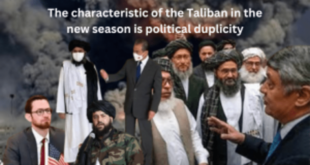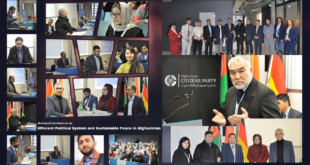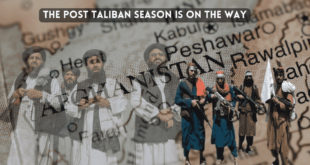In recent weeks, a series of large and continuous sessions of opposing movements to the Taliban have been held in various countries. These meetings aim to explore ways of unity, clarify the current situation in the country, and discuss how to rescue the nation from the grip of the formidable Taliban. In this context, efforts towards the unity of parties, movements, and various fronts opposing the Taliban, both politically and militarily, are of greater significance. The global community and influential countries, over the past two years, have become disappointed with the Taliban’s adherence to international commitments and their failure to create a political system based on the will of the people. The dispersion of anti-Taliban movements has led both the citizens of the country and the global community to constantly voice the need for a reliable alternative to the Taliban.
Therefore, strengthening and harmonizing these movements towards creating a powerful alternative against the Taliban is an undeniable necessity. It seems that the opponents of the Taliban need agreement on two levels: objectives and tactics.
Objectives relate to the foundations of the future political system, reasonable solutions for power distribution, the mechanism of system responsiveness to the will of the people, and inclusive participation in all political processes transcending gender and ethnicity. Forces that are currently engaged in political or military opposition to the Taliban have recorded significant past failures, mainly attributed to the lack of consensus on a democratic political system compatible with the country’s ethnic diversity and geographical and cultural structure.
Based on this, it is imperative that the opponents of the Taliban, drawing on both successful and unsuccessful experiences in the country and similar nations, shape the future political system in a way that ensures the genuine manifestation of the people’s will. This should include a fair distribution of political power and widespread participation in political processes. Past experiences have shown that a centralized political structure in a country with a history of tyranny becomes a breeding ground for monopoly, authoritarianism, corruption, and ultimately deviation. Therefore, it is imperative that, in the future roadmap for the country, decentralization in the political structure becomes a focal principle, drawing from the successful experiences of democratic nations.
Tactics, in relation to how to interact with the Taliban, play a crucial role in the stages of combating the Taliban and liberating the country from the captivity of an insurgent group. On one hand, there is a need to create a reliable alternative capable of challenging the Taliban, and on the other hand, effective negotiations with the global community and countries both near and far are essential. While opponents of the Taliban require the establishment of a unified and cohesive front for strong regional and global advocacy and targeted internal struggle, they equally need to prevent another form of monopoly within.
This is because the aspirations of the Afghan people’s struggle have always been directed towards rejecting monopolies and tyranny in all its forms. Additionally, the tactics employed should include revealing the true nature of the Taliban project, exposing the proxy mission of this group, and bringing to light the behavioral and rhetorical contradictions of this group. These elements should be prioritized among the combat tactics.
 حزب شهروندان افغانستان وبسایت رسمی حزب شهروندان افغانستان
حزب شهروندان افغانستان وبسایت رسمی حزب شهروندان افغانستان


